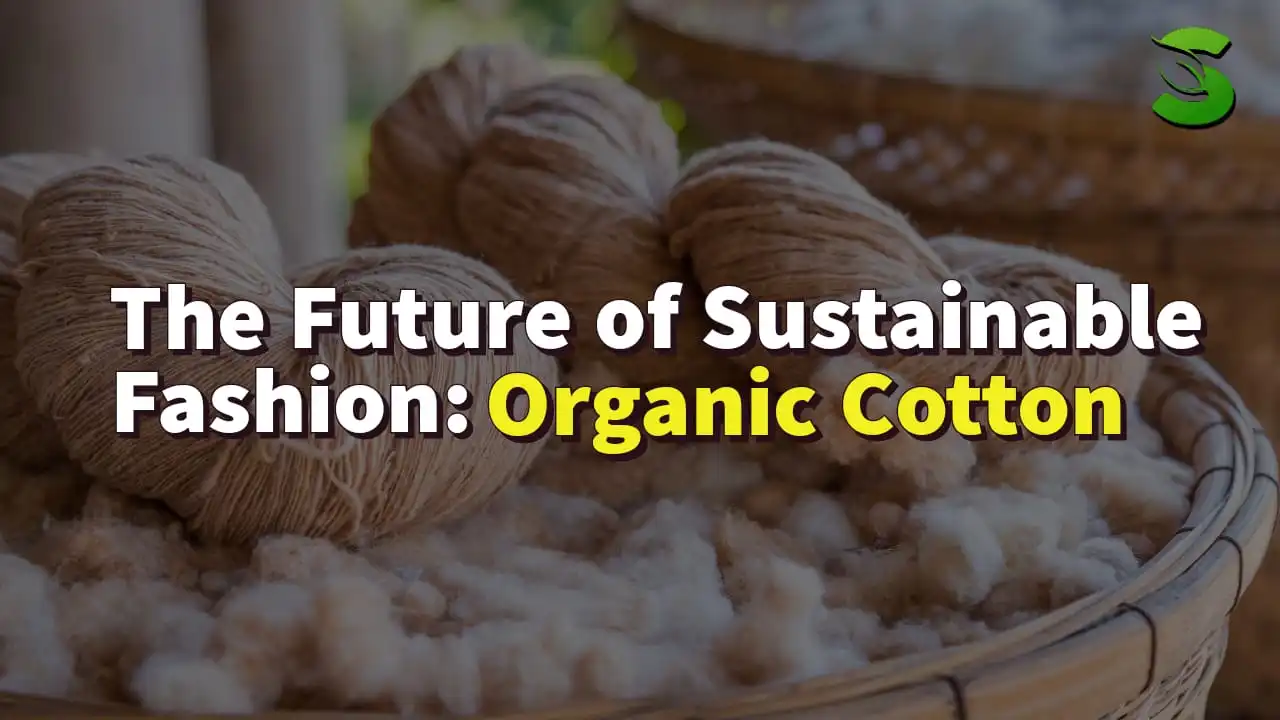In the fast-paced world of fashion, sustainable practices have gained momentum like never before. As eco-conscious consumers continue to prioritize products that are both stylish and environmentally responsible, the fashion industry is undergoing a profound transformation. Organic cotton, often hailed as the future of sustainable fashion, has emerged as a frontrunner in this shift towards a greener, more ethical industry. In this article, we’ll delve deep into the world of organic cotton and why it is poised to revolutionize the fashion landscape.
What is Organic Cotton?
Organic cotton is a type of cotton grown using methods and materials that have a low impact on the environment. Unlike conventionally grown cotton, which relies heavily on synthetic pesticides and fertilizers, organic cotton cultivation emphasizes natural, sustainable alternatives. This approach ensures that the soil and surrounding ecosystems remain healthy and free from harmful chemicals.
The Eco-Friendly Advantages of Organic Cotton
1. Reduced Chemical Usage
One of the primary advantages of organic cotton is the significant reduction in chemical usage. Conventional cotton farming relies on synthetic pesticides and fertilizers, which have detrimental effects on the environment. These chemicals not only contaminate the soil but also find their way into water bodies, causing widespread pollution. Organic cotton, on the other hand, promotes a natural ecosystem where pests are controlled through biological means and crop rotation, ensuring a cleaner, chemical-free environment.
2. Water Conservation
Conventional cotton cultivation is notorious for its water-intensive nature. It takes a staggering amount of water to grow cotton conventionally. Organic cotton farming, however, employs water-efficient practices and often relies on rain-fed farming methods. This leads to a significant reduction in water consumption, making organic cotton a more sustainable choice.
3. Soil Health
Organic cotton farming focuses on maintaining and improving soil health. Crop rotation, composting, and reduced chemical usage contribute to healthier, nutrient-rich soil. As a result, organic cotton farming methods not only protect the environment but also ensure long-term agricultural sustainability.
4. Biodiversity Preservation
The use of synthetic pesticides and fertilizers in conventional cotton farming poses a severe threat to local biodiversity. Organic cotton farming fosters a harmonious environment where various species coexist. Birds, insects, and other wildlife find a sanctuary in these organic cotton fields, promoting ecological balance.
Ethical Practices in Organic Cotton Farming
Beyond its environmental advantages, organic cotton is a champion of ethical and fair labor practices. Workers involved in organic cotton farming are treated fairly and are not exposed to the harmful chemicals commonly associated with conventional cotton cultivation. This promotes better working conditions and supports the well-being of farming communities.
The Fashion Industry’s Shift Towards Organic Cotton
With consumers becoming more conscious of their choices, fashion brands are increasingly adopting organic cotton in their collections. Leading fashion houses are recognizing the importance of sustainability and ethical practices in their supply chains. This transition towards organic cotton is a testament to the growing demand for eco-friendly and ethical fashion choices.
Why Organic Cotton is the Future of Sustainable Fashion
The reasons why organic cotton is the future of sustainable fashion are compelling:
1. Eco-Friendly Appeal
Organic cotton’s eco-friendly appeal is a driving force behind its increasing popularity. As more consumers seek to reduce their environmental footprint, organic cotton clothing offers a guilt-free option.
2. Quality and Comfort
Organic cotton is renowned for its superior quality and comfort. The absence of harsh chemicals in its production ensures soft, hypoallergenic, and long-lasting fabrics that feel great against the skin.
3. Brand Reputation
Fashion brands that adopt organic cotton showcase their commitment to sustainability. This not only boosts their reputation but also attracts a more conscientious customer base.
4. Legal and Regulatory Support
Governments and international organizations are encouraging the use of organic cotton through subsidies and regulations. This support further drives the industry towards embracing sustainable practices.
FAQ: Understanding Organic Cotton
1. What makes organic cotton different from conventional cotton?
Organic cotton is grown without the use of synthetic pesticides and fertilizers, relying on natural and sustainable alternatives for pest control and soil health. This makes it an environmentally friendly and sustainable choice compared to conventionally grown cotton.
2. Is organic cotton more expensive?
While organic cotton products may have a slightly higher price tag, the benefits in terms of environmental sustainability, ethical practices, and product quality make it a worthwhile investment.
3. Is organic cotton clothing comfortable?
Yes, organic cotton clothing is known for its exceptional comfort. The absence of harsh chemicals in its production ensures that organic cotton fabrics are soft, hypoallergenic, and gentle on the skin.
4. How does organic cotton benefit the environment?
Organic cotton cultivation reduces chemical usage, conserves water, preserves soil health, and promotes biodiversity. It minimizes the negative impact on the environment that is commonly associated with conventional cotton farming.
Conclusion: A Greener Fashion Landscape
In conclusion, organic cotton is the future of sustainable fashion. Its eco-friendly cultivation methods, ethical practices, and consumer appeal make it a frontrunner in the movement towards a greener and more responsible fashion industry. As the demand for eco-conscious choices continues to rise, organic cotton will undoubtedly play a pivotal role in shaping the fashion landscape of tomorrow.
ALSO READ |The Ultimate Guide to Sustainable Living: Tips and Tricks to Reduce Your Impact on the Planet







